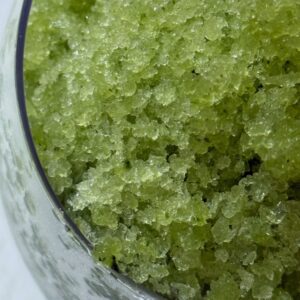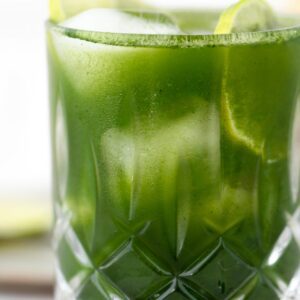Understanding Heavy Metal Exposure and Toxicity: Essential Minerals vs Harmful Metals
Heavy metals are often viewed solely as harmful, but the reality is more nuanced. Some, such as iron, cobalt, and zinc, are essential for human health, supporting oxygen transport, enzyme activity, and immune function. Others, like ruthenium, silver, and indium, are not required for biological processes and may become toxic at higher levels. Certain metals, including mercury, cadmium, and lead, are highly toxic even at very low concentrations.
While heavy metals naturally occur in the earth’s crust, human activity has dramatically increased exposure. Everyday items such as mobile phones, plastics, cars, dyes, and insecticides contribute to the accumulation of these metals in our environment. Additionally, industrial waste, agricultural runoff, occupational exposure, and old plumbing systems are common sources of contamination.
The biological effects of heavy metals have been recognized for centuries. Some derivatives are still used medicinally: arsenic, platinum, and ruthenium as anticancer agents; antimony for protozoal infections; bismuth for ulcers; gold for arthritis; and iron for malaria. Metals such as copper, zinc, gold, and silver also have anti-inflammatory properties, highlighting their dual nature: beneficial in the right dose and form, yet toxic when mismanaged.
Trace elements like cobalt, copper, chromium, iron, manganese, magnesium, molybdenum, nickel, selenium, and zinc are vital for numerous physiological processes, and deficiencies can cause serious health issues. However, excessive exposure—or exposure to the wrong chemical form—can lead to heavy metal toxicity. Factors such as absorption pathways, temperature, and individual physiology influence the bioavailability of heavy metals, determining how much becomes active and potentially harmful in the body.
Today, exposure to toxic metals like arsenic, cadmium, chromium, lead, and mercury is a major public health concern. These metals can damage organs, interfere with molecular pathways, and even alter genetic material. Understanding sources of heavy metal exposure and implementing strategies for prevention and natural detoxification are therefore essential for long-term health.
Symptoms and Risks of Heavy Metal Toxicity
The effects of heavy metal exposure vary depending on the type of metal, dose, and duration of exposure. Common health impacts include:
- Neurological damage: Mercury and lead, for example, impair cognitive function, memory, and motor skills.
- Kidney and liver stress: Cadmium and arsenic often accumulate in detoxification organs, causing long-term damage.
- Cardiovascular risk: Some metals increase oxidative stress and inflammation, raising the risk of hypertension and heart disease.
- Immune disruption: Chronic exposure can weaken the immune system and increase susceptibility to infections.
These toxic effects underline the importance of dietary and therapeutic strategies that can support detoxification.
Dietary Considerations for Heavy Metal Detoxification
The first step in reducing heavy metal burden is making changes in nutrition and lifestyle that promote overall health. A plant-based diet rich in antioxidants and detox-supporting compounds plays a central role.
- Green leafy vegetables
Dark, bitter greens like cabbage, spinach, beet greens, and tomatoes are powerful allies in detoxification. Studies suggest daily consumption reduces inflammation and provides antioxidant protection, which helps the body neutralise and eliminate heavy metals.
- Cruciferous vegetables
Broccoli, cabbage, kale, and Brussels sprouts help your body detox heavy metals. They contain sulfur compounds that support liver detox enzymes and boost glutathione, a key antioxidant that binds toxins and helps remove them from the body.
- Herbs and spices
Many culinary herbs have anti-inflammatory and antioxidant effects that assist in clearing metals. Parsley, basil, rosemary, thyme, ginger, turmeric, cinnamon, and cilantro are particularly valuable. Cilantro, in particular, has shown promise in mobilising heavy metals like mercury and lead, preventing their accumulation in tissues.
- Vitamin C-rich foods
Fruits and vegetables high in vitamin C help reduce oxidative damage caused by heavy metal exposure. Citrus fruits (oranges, grapefruits), kiwi, and leafy greens provide strong antioxidant activity, protecting cells while supporting detox pathways.
- Fibre-rich foods
Plant fibres from fruits, vegetables, and whole grains bind to toxins in the digestive tract and help carry them out of the body, reducing reabsorption and lowering the overall toxic load.
Medicinal Herbs and Natural Agents for Detoxification
Medicinal herbs have long been used to support detoxification, and modern research increasingly validates their potential in reducing the toxic burden of heavy metals. While pharmaceutical chelators are sometimes necessary, they can cause significant side effects, such as kidney stress or depletion of essential minerals. Herbal and natural remedies, by contrast, often act more gently, providing antioxidant protection, enhancing liver and kidney function, and binding metals for elimination.
Below are some of the most studied and promising options:
- Mechanism: An Ayurvedic blend of three fruits (Emblica officinalis, Terminalia chebula, and Terminalia bellirica) that enhances gut health and detoxification.
- Benefits: Acts as a gentle laxative and antioxidant, supporting elimination of toxins while reducing inflammation.
- Evidence: Shown to improve digestive function, reduce oxidative stress, and protect organs against toxin-induced injury.
- Mechanism: Contains natural chelators like phytochelatins and chlorophyll that bind heavy metals in the gut and bloodstream.
- Benefits: Effective in mobilising and excreting mercury, cadmium, and lead. Also boosts immune function and supports gut microbiota.
- Evidence: Clinical studies show chlorella supplementation increases urinary mercury excretion and reduces oxidative markers in humans.
- Mechanism: A highly porous substance that binds toxins, chemicals, and heavy metals in the gastrointestinal tract, preventing absorption and promoting elimination.
- Benefits: Traditionally used in emergency medicine for acute poisoning. When taken in smaller amounts, it may help reduce chronic toxin load.
- Evidence: While most evidence comes from acute toxicity treatment, research suggests charcoal can reduce systemic burden of environmental toxins when used with care.
- Mechanism: A traditional Chinese and Russian adaptogen rich in lignans, which enhance phase I and II liver detoxification enzymes and increase glutathione activity.
- Benefits: Improves resilience to oxidative stress, supports liver regeneration, and enhances the body’s ability to metabolise and excrete toxins, including heavy metals.
- Evidence: Clinical studies show schisandra protects against liver injury from chemicals and heavy metals, while also improving stamina, cognition, and stress response.
Garlic (Allium sativum)
- Mechanism: Garlic contains sulfur-based compounds such as allicin and S-allyl cysteine, which can bind to heavy metals like lead, cadmium, and mercury.
- Benefits: Helps block absorption of toxic metals in the gut and enhances excretion through urine. It also provides antioxidant support to protect the liver and nervous system from oxidative damage.
- Evidence: Animal and human studies show garlic supplementation reduces cadmium and lead levels in tissues and improves symptoms of metal-induced toxicity.
Milk Thistle (Silybum marianum)
- Mechanism: Contains the flavonoid complex silymarin, which stabilises cell membranes, reduces free radical damage, and promotes regeneration of liver cells.
- Benefits: Protects the liver against toxin-induced damage and improves its detoxification capacity, which is critical in processing heavy metals.
- Evidence: Widely studied for protecting against drug- and alcohol-induced liver injury; experimental evidence also suggests it reduces oxidative damage from heavy metal exposure.
Cilantro (Coriandrum sativum)
- Mechanism: Bioactive compounds in cilantro mobilise heavy metals from tissues into the bloodstream for excretion.
- Benefits: Particularly effective against mercury, lead, and aluminum. Often combined with other binders (like chlorella) to enhance removal and prevent redistribution.
- Evidence: Some studies in humans and animals suggest cilantro increases urinary excretion of lead and mercury, though more controlled clinical trials are needed.
Ginkgo biloba
- Mechanism: Rich in flavonoids and terpenoids that enhance circulation and provide strong antioxidant activity.
- Benefits: Protects neurons from oxidative stress and improves blood flow, counteracting neurological damage from mercury and lead.
- Evidence: Shown to improve memory, reduce oxidative stress, and support nerve repair in conditions worsened by toxic exposure.
Turmeric (Curcuma longa)
- Mechanism: Curcumin, its main active compound, reduces inflammation, inhibits oxidative stress, and stimulates bile flow, aiding liver detoxification.
- Benefits: Protects the liver and kidneys against heavy metal-induced injury. Curcumin also binds to certain metals and reduces tissue accumulation.
- Evidence: Animal studies show curcumin lowers cadmium- and arsenic-induced liver damage, with improved antioxidant enzyme activity.
Heavy metals present both risks and opportunities: some are essential for health, while others are toxic and damaging. In today’s world, where exposure is widespread through industry, agriculture, and even household materials, understanding how to prevent and manage toxicity is critical.
A combination of dietary strategies, particularly plant-based foods rich in antioxidants, fibre, and vitamin C, together with medicinal herbs offers a practical and supportive approach. While these natural strategies may not replace medical treatment in cases of acute poisoning, they can play an important role in lowering the body’s burden of heavy metals and protecting long-term health.
PRODUCT HIGHLIGHTS





